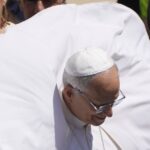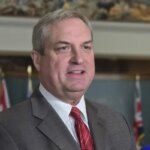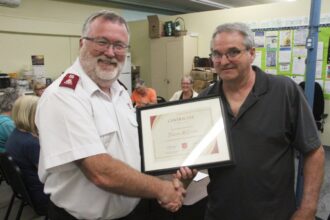In a pivotal moment for Canadian parliamentary proceedings, Liberal MP Francis Scarpaleggia has been elected as the new Speaker of the House of Commons, marking a significant transition in Canada’s legislative leadership. The veteran parliamentarian from Quebec secured the position after a competitive selection process that concluded yesterday afternoon in Ottawa.
Scarpaleggia, who has represented the Montreal riding of Lac-Saint-Louis since 2004, brings over two decades of parliamentary experience to the Speaker’s chair. His election comes at a particularly challenging time for Canadian politics, with increased partisan tensions and complex legislative agendas dominating the parliamentary calendar.
“I am deeply honored by the trust my colleagues have placed in me,” Scarpaleggia stated after the announcement. “The role of Speaker demands absolute impartiality and steadfast commitment to the democratic process. These are responsibilities I do not take lightly.”
The election proceeded through several rounds of ranked balloting, with Scarpaleggia ultimately securing majority support from both government and opposition members. His victory reflects rare cross-partisan consensus in an increasingly divided House of Commons, with MPs from Canada’s major political parties acknowledging his reputation for fairness and procedural expertise.
Prime Minister Justin Trudeau welcomed the appointment, noting that “Scarpaleggia’s institutional memory and demonstrated commitment to parliamentary decorum make him exceptionally qualified to guide our legislative debates.” The newly elected Speaker has served on numerous parliamentary committees throughout his career, most notably chairing the Standing Committee on Environment and Sustainable Development.
Opposition Leader Pierre Poilievre offered measured support, stating that “while we have policy disagreements with the government, all members benefit from having a Speaker committed to protecting the rights of Parliament and ensuring respectful debate.”
The Speaker’s role extends beyond maintaining order during Question Period. Scarpaleggia will now oversee the administration of the House of Commons, represent Parliament at diplomatic functions, and cast deciding votes in the event of ties—all while maintaining strict political neutrality. These administrative responsibilities include managing an annual budget exceeding $500 million and supervising approximately 2,000 employees who support parliamentary operations.
Scarpaleggia’s election follows months of increasing parliamentary tensions over several contentious pieces of legislation. Parliamentary observers have noted the challenge facing any Speaker in the current political climate, where procedural tactics and heated exchanges have become increasingly common.
“The Speaker faces an extraordinarily difficult balancing act,” explained Dr. Lori Turnbull, Director of the School of Public Administration at Dalhousie University. “They must enforce the rules while allowing for robust debate, maintain order without stifling democratic expression, and remain absolutely impartial despite having been elected as a partisan MP.”
Scarpaleggia’s immediate predecessor faced criticism from opposition parties for rulings perceived as favoring the government, highlighting the precarious position the Speaker occupies in Canada’s Westminster system. Political analysts suggest Scarpaleggia’s relatively low-key profile and reputation for thoughtful moderation contributed significantly to his successful bid.
The new Speaker’s first major test will come later this week as Parliament prepares to debate contentious economic legislation that has sharply divided government and opposition benches. His ability to maintain decorum while ensuring productive debate will be closely scrutinized by parliamentarians and the public alike.
As Canada navigates increasingly complex domestic and international challenges, the question remains: can Scarpaleggia’s leadership in the Speaker’s chair help restore civility and effectiveness to our parliamentary democracy, or will partisan divisions continue to undermine the collaborative governance Canadians increasingly demand?
























